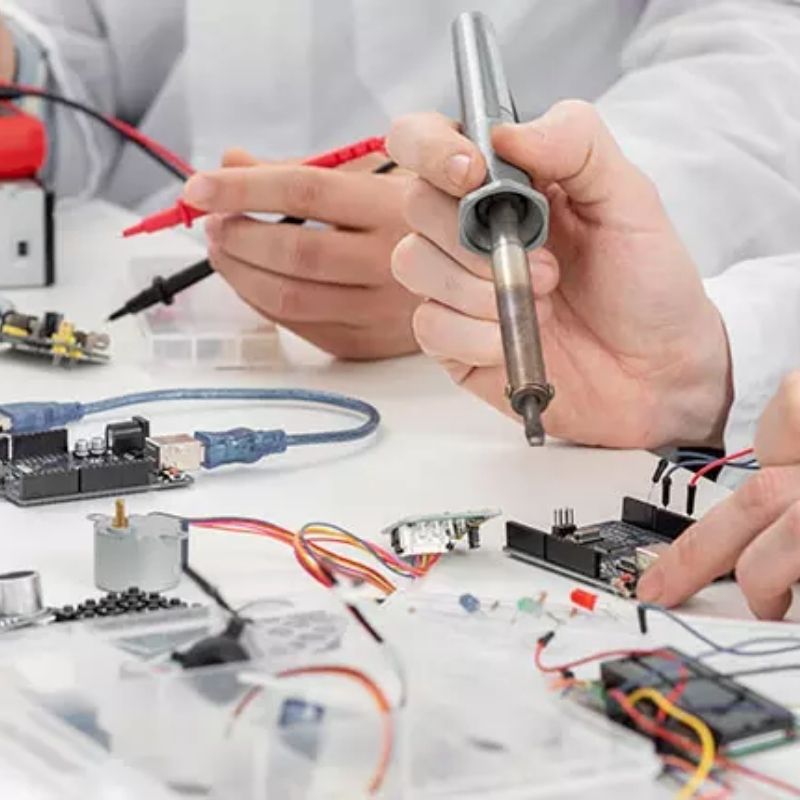B.Tech - Electrical and Electronics Engineering
B.Tech in Electrical and Electronics Engineering offers a blend of electrical engineering principles and electronics, preparing students for careers in power systems, automation, and electronic design.

The B.Tech in Electrical and Electronics Engineering program is a four-year undergraduate course that integrates the fundamentals of electrical engineering with modern electronics. The curriculum covers a wide range of subjects, including power generation, electrical machines, digital electronics, embedded systems, and control systems. The program aims to develop students' problem-solving skills and technical expertise to address challenges in electrical and electronic engineering domains. Practical learning is emphasized through lab sessions, projects, and internships, providing hands-on experience with industry-relevant technologies.
Key Highlights of the Program:
Focus on research, innovation, and participation in technical competitions.
The curriculum is structured over eight semesters, with core subjects, electives, and practical sessions.
Core Subjects:
Electives and Specializations:
Laboratory and Practical Sessions:
To enroll in the B.Tech in Electrical and Electronics Engineering program, candidates must meet the following requirements: